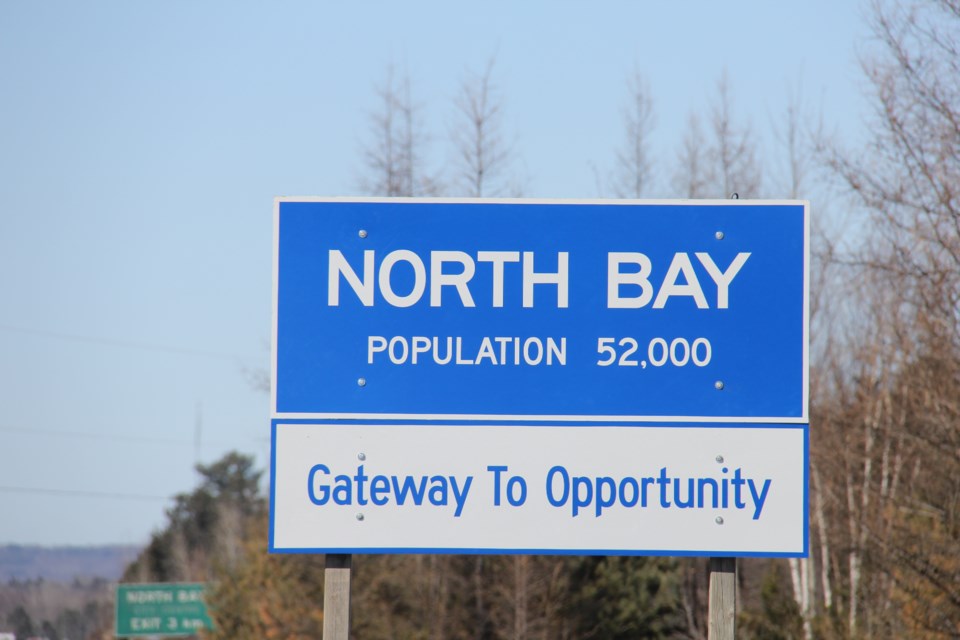Do you remember more than 10 years ago when the North Bay population on the signs coming into the city read 54,000?
Well, they may be saying that again soon. The signs have read "Population 52,000" for years.
A major reason why our population is increasing is the Rural and Northern Immigration Pilot program. As I predicted several times in this space, it won’t be a pilot much longer. It will be a permanent immigration program.
Federal Immigration Minister Marc Miller said at a news conference on Oct. 31 in Ottawa that his department plans to make the program permanent. Many newcomers have been concerned about the previously announced end date of February 2024.
Worry no longer.
It’s not official, but ministers don’t talk like that in front of the national and local media unless they’re sure it’s going to happen.
At the news conference, he said not only will RNIP become a permanent program, it will be expanded to more small centres, including those with francophone populations.
The present RNIP centres are North Bay, Timmins, Sudbury, Sault Ste. Marie and Thunder Bay in Ontario; Brandon and Altona/Rhineland in Manitoba; Moose Jaw, Sask.; Claresholm, Alta.; and Vernon and West Kootenay (Trial, Castlegar, Rossland and Nelson) in B.C.
In North Bay, the program is a community partnership, led by the North Bay & District Chamber of Commerce and Yes Employment Services. The hard-working RNIP coordinators are Heather van Veen at Yes Employment Services and Jill Dupuis at the Chamber office.
Chamber President and CEO Donna Backer signs the community recommendation forms newcomers receive after being vetted locally. Armed with that cherished signed form, they then apply for permanent residence through the federal government.
She had this to say in an email to me: “While we are encouraged to read that the IRCC plan for immigration moving forward will seek to make the Rural and Northern Immigration Pilot (RNIP) a permanent program we have not heard anything definitive as of yet. I won’t speculate any further until we hear from IRCC on this and we are eager to learn more about the plan.”
Mayor Peter Chirico moved from Chamber President and CEO to the mayor and used to sign those forms. With the Chamber as the lead agency, he was, and is, very familiar with the program. I received the following statement in an email:
"The Rural and Northern Immigration Pilot has had a positive impact on our city and on other Northern Ontario communities. It's playing a crucial role in supporting the local economy, addressing labour shortages, and attracting new residents. The program has also been a driver for increased diversity.
“In our recent meeting, the Northern Ontario Large Urban Mayors, which includes representatives from North Bay, Sudbury, Sault Ste. Marie, Timmins, and Thunder Bay emphasized the importance of sustaining this program. It's a practical solution that's proving effective for us, and we're committed to seeing it continue."
The quota for community recommendations this year in North Bay is 250, and it looks very likely that target will be met.
That is 250 principal applicants. Many are single, but many are married, and many have children, so my guess is we can double that number to 500 people.
Many of them were already here, having graduated from Canadore College or Nipissing University (most likely Canadore) received a Post-Graduation Work Permit, and are working in the city.
Now that RNIP will become a permanent program, we can predict that Canadore, and hopefully, eventually, Nipissing, will attract even more international students to our city who want to become permanent residents, and, later, citizens.
Over time, as they follow the steps from student, to worker, to permanent resident, we will see 500 people a year becoming permanent residents, or more, if the city’s community recommendation quota is increased.
That’s a good thing, for all the reasons cited by Mayor Chirico.
It’s good for school enrolment numbers, filling jobs employers can’t fill otherwise, increasing ridership on city transit, increasing patrons at the library, increasing the availability of international food items in our grocery stores, making more diverse cuisine available at our restaurants, creating new businesses, and the list goes on, and on.
North Bay’s population dropped 3.9 per cent between the census in 2011 and the one in 2016, and then increased by 2.2 per cent between 2016 and 2021, to 52,667. The census area population increased 1.9 per cent to 71,736. That number includes townships close to the city plus Callander and Powassan.
The newcomers coming to our city are highly educated. The majority have university degrees from their home countries and then more post-secondary education here. You may see them working at fast food operations while they are in school or shortly thereafter, but they have big dreams and are determined to make them happen.
Many are working with the painfully slow and archaic professional accreditation bodies for nurses, engineers, accountants, dentists and more, to get their professional designations, which they had for years in their home countries.
But that’s a story for another day.
Editor’s Note: Don Curry is a Regulated Canadian Immigration Consultant living in North Bay. He is a member of Bay Today’s community advisory committee.



